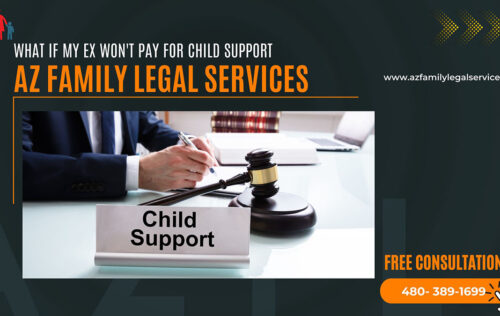ARIZONA FAMILY LEGAL SERVICES
CHILD CUSTODY
Introduction to Child Custody Cases
Introduction to The Tragedy of Child Custody Cases

Going through a divorce proceeding is not an easy process by any means. This becomes even more painfully true when children are involved. Not only will your life get turned upside down with your soon to be ex-spouse, you will have limitations on how often you can see your children. Depending on the type of custody, or parenting time, arrangement you have with the other parent will determine how often you spend time with your child.
If you have a 50/50 schedule, you will only get to see your children half the amount of time you are use to. Some scenarios will give one parent the majority of the time with their child, with either weekend visits with the other parent or visitation that the other parent. For some people, the strain of this type of change is too much for them emotionally and the results can be incredibly tragic. While it is most a requirement to conduct psychological testing before a child custody battle, it could reveal a lot of information about the family that could be helpful for the court.
Child Custody Basics
When a couple goes through a divorce with children, either the couple or the judge will decide where those children are going to live. There are a dozen types of custody arrangements that might occur with your family, but no matter what arrangement is, the life that the family once knew will be very, very different. A common type of custody arrangement is just a 50/50 split. What this means is that the two parents will split the time with their children equally among their houses. This is commonly referred to as a joint custody arrangement. Even though the children arguably benefit from this type of arrangement more than other arrangements – it is still hard on the parents to cope with not seeing their child as much as they are use to. This is a hard adjustment for a lot of people, but for those with their head on straight – they realize that it is best for the children, in most situations.
Child Custody Process
Now, both parents can decide together how they want their custody arrangement to be split. But when those parents struggle with coming to a conclusion together, the court will step in and make that decision for them. The court will consider many factors when it comes to determining the custody of the children. Some of those factors include: the wishes of the child (if the child is old enough as determined by the court); mental and physical health of the parents; religion and/or other cultural considerations; the need for continuation of a stable home environment; support and opportunity to interact with extended relatives of either parent; interaction and interrelationship with other members of the proposed households; adjustment to school and the community where the child will be primarily living; the age and sex of the child; parental use of excessive discipline or emotional abuse; and evidence of parental drug, alcohol, or sex abuse. The court does not need to solely rely on these factors, but these factors do provide a broad overview of what to expect from the court’s decision.
Primary Caregiver
Depending on the jurisdiction, the court may also look at who the primary caregiver was during the marriage. If it can be established that one parent acted as the primary caregiver to the child, the court may give more preference to that parent during the child custody decision making process. This preference is often used because the court wants to keep the emotional bond between the child and their primary caregiver during this time of change and adjustment. Again, there are a lot of factors that go into the consideration of whether one parent would be determined to be the primary care giver. Those factors include whether one parent had the following responsibilities to the child during the marriage: bathing, grooming, and dressing; meal planning and preparation; purchasing clothes and laundry responsibilities; health care arrangements; fostering participation in extracurricular activities; and teaching of reading, writing and math skills.
Evaluation
Once the court has evaluated the various factors for the case at hand, the court will need to decide what type of custody arrangement to order the parents to abide by. As discussed previously, there is a joint custody arrangement that will allow both parents to share their children’s time equally. Another common type of custody arrangement is for one parent to have the children that majority of the week, 5 days roughly, and the other parent to have weekends, or roughly 2 days. This is a sole custody arrangement. The child will live with one parent the majority of the time, and either spend weekends with the other parent or have visitation with the parent. The court wants to encourage family relationships, even if one parent is going through some difficult times with alcohol or drugs. Keeping the relationships between family members together, even after the divorce, is a goal of most attorneys and judges.
There is also a type of custody that is for making decisions for the child. That is the legal decision making custody. Legal decision making for the child means that the parent, or parents, with that authority make life decisions for the child. This will include decisions about where the child lives, what school the child will attend, what religion the child will partake in, and medical decisions for child. This type of custody can also be awarded jointly between the parents, or solely to one parent.
Tragic Events in Child Custody Cases
Now, a divorce is already a major life change that many people have a hard time adjusting to. When you throw children into the mix, it makes things a lot harder. Parents, and children, have to adjust to not being in the same home with both parents and not seeing each parent as much as you use to. This is hard on everyone involved, even if an amicable divorce. For this reason, and many others, there is a lot of tragedy involved with child custody cases.
Case Study
Just recently, in July 2016, here in Arizona – there was a deadly shooting outside of a courtroom in Navajo County after a child custody hearing. A third person was injured but survived the shooting. The gunman was 47-year-old Salomon Diaz from Snowflake, Arizona. He was the paternal grandfather of the two children who the child custody hearing was about. The two women who he killed were 25-year-old Ashley Utley, the children’s mother and 45-year-old Sherry Quintero-Davenport, who was the maternal grandmother.
Salomon Diaz has been charged with second-degree murder for the deaths of these two women. Salomon Diaz had been taking care of the two children, who were just 2 and 3 years old, prior to the hearing. He had made claims to child-welfare officials that the mother had a history of abusing these children. At the hearing, the judge ruled that the mother should have visitation with the children, at least while he decided on other issues. The decision to allow the mother to visit the children was evidently too much for Salomon Diaz to handle, which is why he shot them after the hearing.
Results
Scenarios like that one above happen all the time, unfortunately. Another tragic occurrence that happens far too frequently is when the mother or father takes the lives of their children after a child custody (or other type of hearing) that either takes the children away from them, or permits visitation or some parenting time with the children. In 2013, a woman killed both of her children – ages 10 and 13 – after she lost a custody battle with her ex-husband. The judge had determined that the mother was responsible for extreme parental alienation between the father and the children, which is likely why he granted custody to the father instead of the mother. This is obviously too much for this woman to psychologically handle, and she snapped. Even though it can be hard to judge the emotional and mental stability of individuals, when possible the court should take notice of individuals who seem unstable, like the mother in this case. However, that is not always an easy task.
Often times one spouse will ask for another to undergo psychological evaluation during the child custody proceeding. Even though this process can be tedious and time consuming, it can also be incredibly helpful and insightful. Many times when a psychological evaluation is utilized with a child custody case there are allegations of some type of abuse from one spouse to another – or between two spouses. These evaluations are used to try to get a better understanding of the home life of these families and see if there is any merit to the allegations made between spouses. These type of evaluations can also be used to detect any type of mental or emotional instability, which could be life saving for individuals like the above listed scenarios.
What Are the Most Important Factors in Child Custody in AZ?
The most important decision you’ll make during your divorce is child custody. Both parents want to spend time with their kids. Neither parent wants to voluntarily surrender custody. However, you have to be realistic. The kids should stay with the parent who is able to take care of them. If you work full-time, it may not be possible for you to have primary custody. Your Arizona divorce attorney will have to negotiate with your spouse’s lawyer to resolve this issue. Ideally, the two of you can come to an agreement that’s fair for both of you. If that isn’t possible, then the court will order you to go to mediation.
If you’re not able to resolve the issue of custody, the judge will do it for you. Just keep in mind – the court is only concerned with the best interests of the children. They don’t care what you want or how much child support you’ll have to pay. They just want to make sure the kids get the best care possible. If you’re dealing with a child custody issue right now, you should call and talk to an Arizona divorce attorney.
The Judge Will Look at Which Parent Works More Hours
One thing the judge must look at is how many hours the parents work. If you’re gone until evening most days, the judge isn’t going to appoint you the primary caretaker. If your spouse has been a stay-at-home parent throughout the marriage, they’ll probably be awarded primary custody.
Just because someone is awarded custody, that doesn’t mean the other parent has no rights. You’ll still have legal custody of the children. You just won’t be the parent of primary residence. You’ll likely get the kids every other weekend and one night a week. You may get extra time in the summer or around the holidays. The court just must make sure the kids are living with the parent who is in the best position to care for them.
Who Has Been the Primary Caretaker Up Until This Point?
The court is always going to look at who has been the primary caretaker up until the divorce. The judge isn’t going to want to disrupt your children’s schedule. It makes the most sense for them to keep their old routines. This means that the court will award primary custody to the parent who has been taking care of the kids prior to the divorce.
Do Any of the Children Need Special Care?
One other thing the court must consider is whether any of your children need special care. Suppose one of your children has a medical condition that requires constant supervision. If you’re working full-time, you won’t be able to provide this care. Your spouse will likely be awarded custody just so that they can take care of your special needs child.
The Kids Should Stay in the Same School System
A special consideration may arise if you plan on moving out of your child’s current school district. The court isn’t going to want to pull the kids from their school. Their lives will already be disrupted enough by the divorce. They shouldn’t have to leave their friends and teachers too.
Call an Experienced Arizona Divorce Attorney Today
If you’re in the midst of a divorce and need to resolve child custody issues, call our office immediately. Talk to one of our experienced Arizona divorce attorneys right away. Once the court decides on custody, it’s hard to get it changed. There’s simply too much at stake to try to handle this on your own.



